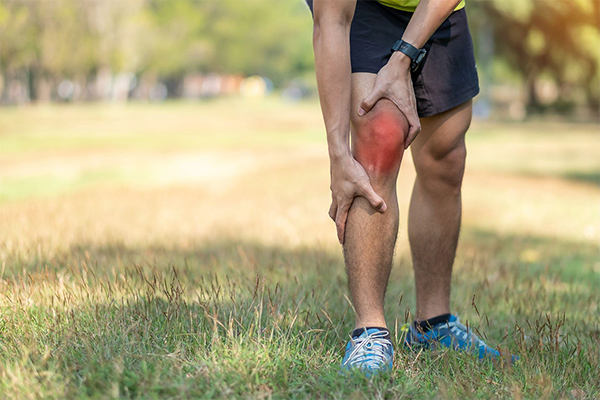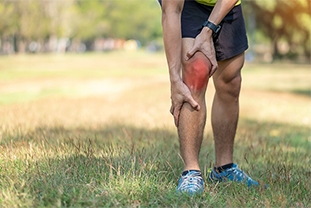
Have you ever been going about your day and all of a sudden your knee locks up? A locked knee is a common phenomenon where an individual cannot bend or straighten their knee for a period of time. A locked knee can occur occasionally or may be due to a chronic condition. Either way, it is important to know the cause behind your knee locking so you can work to prevent or treat it.
Some common causes for a locked knee include:
- Ligament Damage
Your ligaments stabilize your joints to prevent the bones in your knee from slipping. Sudden stops, changes in direction, or blows to the knee could result in a damaged or torn ligament. Ligament damage can be a cause of locking as well as symptoms of giving way.
- Meniscus Tear
The meniscus is a pad of cartilage in your knee joint that acts as a shock absorber. When this cartilage is torn, it can result in a locked knee, specifically when the meniscus becomes disoriented and stuck in the joint.
- Loose Bone Fragment
When the knee joint suffers damage, there is always the possibility of a fracture or chip of the bone. When a loose fragment is found in the knee joint, it can get lodged in the joint causing a locked knee and intense pain.
- Arthritis
One of the most common causes of a locked knee in older adults is arthritis. Arthritis of the knee is widespread as it is a major weight-bearing joint, causing inflammation and pain. When the inflamed joint is not moved on a regular basis, the knee may swell even more and lock.
- Plica Syndrome
The plica is a thin fold in the membrane protecting your knee joint. When inflamed, the plica can contribute to pain and instability causing a locked knee.
- Patellar Maltracking
Patellar maltracking occurs when the kneecap is displaced when bending or straightening the knee, resulting in a locked knee. This is often indicated by a popping sound and can occur when kneeling, climbing stairs, or twisting the knee.
Although there are many causes of a locked knee, most can be treated with rest, anti-inflammatory medication, or physical therapy. Though some causes such as a meniscus tear or ligament damage may require surgery.
Locked knees are uncomfortable and may indicate other issues in your knee joint. If you often suffer from a locked knee, reach out to NewportCare Medical Group for your orthopedic needs!
NewportCare Medical Group is a comprehensive specialty group located in Newport Beach, California specializing in advanced non-surgical and surgical treatments for a wide range of orthopedic conditions.







